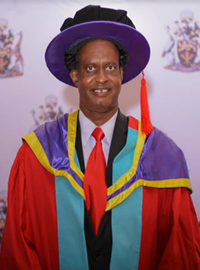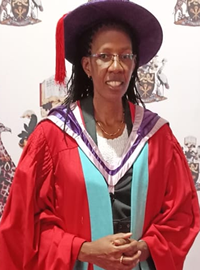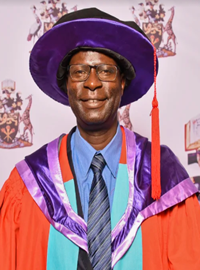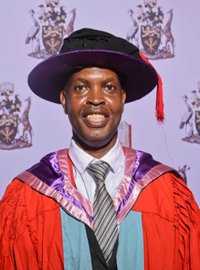Lodompui, Jonathan Ltipalei

Lodompui is a PhD finalist in Political Science and Public Administration UON with a bias in Conflict Transformation, a Master’s Degree in International Relations and Diplomacy and a Bachelor’s Degree in Public Administration and Political Science biased on Reforms and Transformational Development all from the University of Nairobi. He also holds two Diplomas.
Jonathan has many years of management experience in various organizations and in national consultancies in transformative development, peace building and conflict management, with a bias on security matters. Lodompui has made presentations at local and international forums and contributed in academic journals. Some of his works include; Conflict Analysis and Mapping in Kenya, Impoverishment of the Pastoralists Groups in Kenya, Fathers are parents too, the Collapse of the EAC in 1977, the National interest of Tanzania, Samburu Origins, Migrations and Settlement and Internal and external conflict triggers among others.
He is the Vice Chairperson of the Independent Policing Oversight Authority, and the immediate former Director for the Enablers and Macros Directorate at the Kenya Vision 2030 Delivery Secretariat. The Directorate is charged with coordination of the implementation of infrastructure projects such as roads, railways, airports, sea ports, water infrastructure, security, police reforms, Science, Technology and Innovation, Information Communication and Technologies among others.
Prior, Lodompui also worked with the Military as an Air Force Officer, the Child Fund as a Regional Coordinator – North Rift, Teachers Service Commission as a Chief Research Officer and a Director at Kenya Vision 2030 Secretariat in Charge of Infrastructure Development and Reforms. He also taught at various universities including the University of Nairobi, Technical University of Kenya, Africa Nazarene University and the United States International University. Lodompui holds a Master’s Degree in International Relations and Diplomacy and a Bachelor’s Degree in Public Administration and Political Science biased on Reforms and Transformational Development.
Jonathan has many years of management experience in various organizations and in national consultancies in transformative development, peace building and conflict management, with a bias on security matters. Lodompui has made presentations at local and international forums and contributed in academic journals. Some of his works include; Conflict Analysis and Mapping in Kenya, Impoverishment of the Pastoralists Groups in Kenya, Fathers are parents too, the Collapse of the EAC in 1977, the National interest of Tanzania, Samburu Origins, Migrations and Settlement and Internal and external conflict triggers among others.
He is the Vice Chairperson of the Independent Policing Oversight Authority, and the immediate former Director for the Enablers and Macros Directorate at the Kenya Vision 2030 Delivery Secretariat. The Directorate is charged with coordination of the implementation of infrastructure projects such as roads, railways, airports, sea ports, water infrastructure, security, police reforms, Science, Technology and Innovation, Information Communication and Technologies among others.
Prior, Lodompui also worked with the Military as an Air Force Officer, the Child Fund as a Regional Coordinator – North Rift and the Teachers Service Commission as a Chief Research Officer. He also taught at various universities including the University of Nairobi, Technical University of Kenya, Africa Nazarene University and the United States International University.
Abstract
The Thesis analyses the internal and external dynamics that were happening in Kenya and the impact they had on pastoral communities. This Thesis argues that with the coming of Moi into power in 1978, and with political and economic liberalization happening in the late 80s and early 90’s, a trend emerged where traditional pastoral conflict was increasingly being used for political and economic gains. In order to find out if multiparty contributed to the rise of conflict, the survey was conducted in Samburu, Pokot and Turkana. The study concluded that the transition from cultural to commercial raiding has tremendously escalated conflicts. The cultural raiding had rules that governed the number of cattle to be raided, the manner in which to carry out the raids and prohibited any killing especially of women, children and the elderly. This assisted to control escalation of conflicts. The weapons used were inferior and incapable of mass destruction. With introduction of more sophisticated weapons like AK-47 riffles, conflicts resulting to deaths, mass displacement and annihilation of some villages became a new phenomenon. This in turn encouraged more arming of communities and cyclical retaliatory attacks. The cattle industry out of cattle rustling is a huge one supplying meat in urban areas. It is controlled by business people who are not necessarily pastoralists but very well politically connected. This has in turn increased black market for the meat out of stolen cattle thus further enhancing the illegal industry and demand for more cattle leading to more rustling and conflicts.
Research Supervisors
- PROF. FRED JONYO
- DR. JOSHUA KIVUVA



